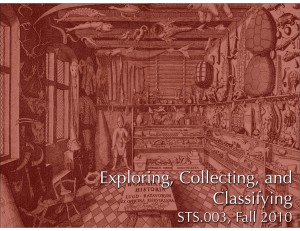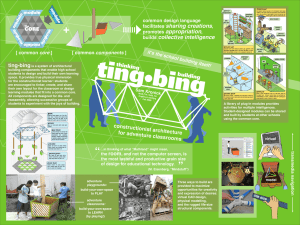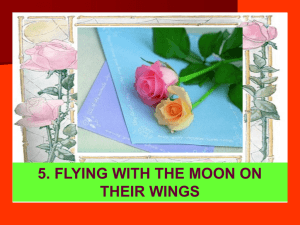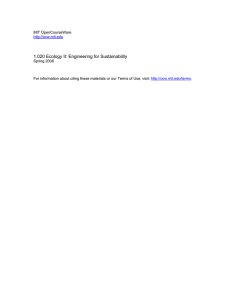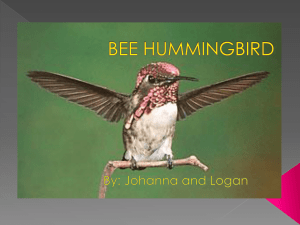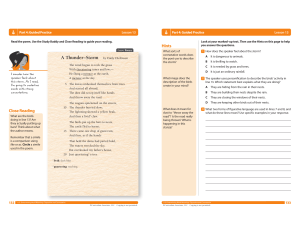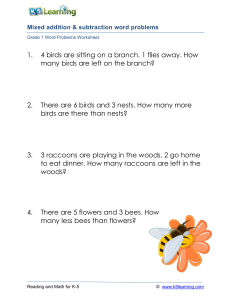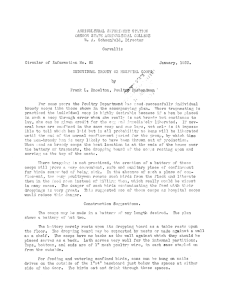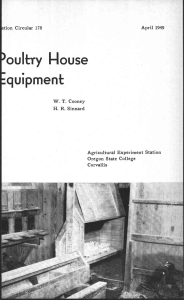Document 13728722
advertisement
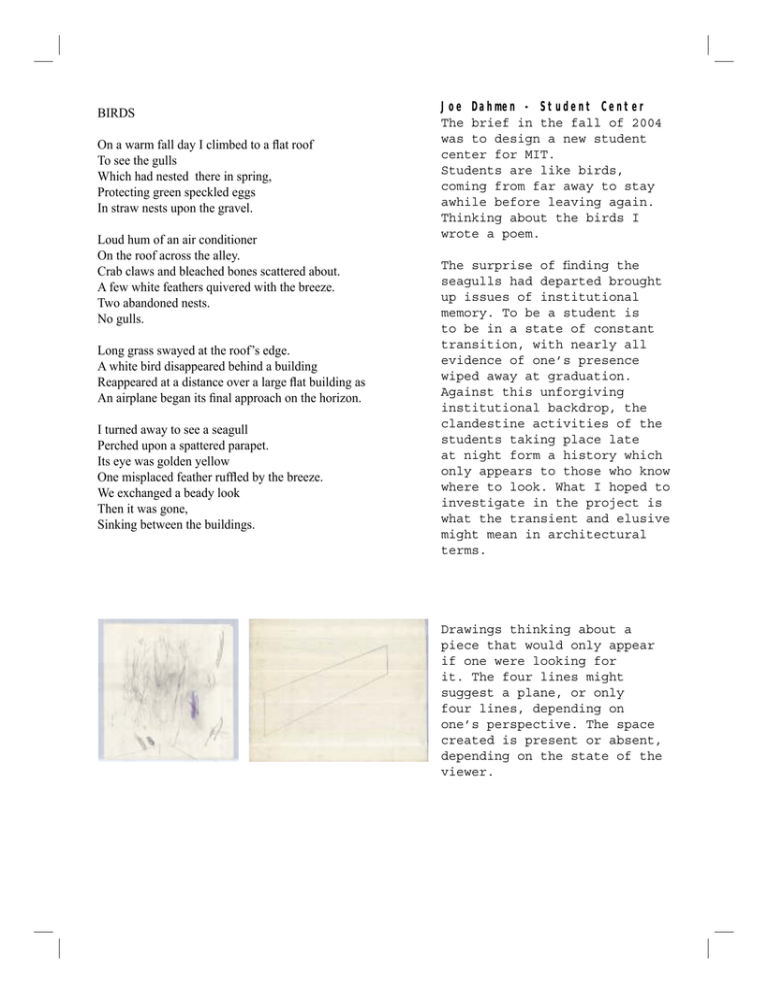
BIRDS On a warm fall day I climbed to a flat roof To see the gulls Which had nested there in spring, Protecting green speckled eggs In straw nests upon the gravel. Loud hum of an air conditioner On the roof across the alley. Crab claws and bleached bones scattered about. A few white feathers quivered with the breeze. Two abandoned nests. No gulls. Long grass swayed at the roof’s edge. A white bird disappeared behind a building Reappeared at a distance over a large flat building as An airplane began its final approach on the horizon. I turned away to see a seagull Perched upon a spattered parapet. Its eye was golden yellow One misplaced feather ruffled by the breeze. We exchanged a beady look Then it was gone, Sinking between the buildings. Joe Dahmen - Student Center The brief in the fall of 2004 was to design a new student center for MIT. Students are like birds, coming from far away to stay awhile before leaving again. Thinking about the birds I wrote a poem. The surprise of finding the seagulls had departed brought up issues of institutional memory. To be a student is to be in a state of constant transition, with nearly all evidence of one’s presence wiped away at graduation. Against this unforgiving institutional backdrop, the clandestine activities of the students taking place late at night form a history which only appears to those who know where to look. What I hoped to investigate in the project is what the transient and elusive might mean in architectural terms. Drawings thinking about a piece that would only appear if one were looking for it. The four lines might suggest a plane, or only four lines, depending on one’s perspective. The space created is present or absent, depending on the state of the viewer. The minimalist sculptor Fred Sandback uses yarn to create spaces of what he terms “no interiority.” My installation consisted of string arranged in a stairwell. The impermanence of the string and the space it created by it, which only appears if one is looking from certain angles, was appealing. Working with thread to create space got me interested in the idea of minimalism in a structural sense. This model investigates the way shape develops stiffness in a material. I turned to the site to try to relate these explorations to an actual building. I did some research on the history of MIT and discovered that the Institute is built on fill. Engineers recommended against building MIT in its present location because they were worried that it would sink before it reached achieved importance. The ground itself is impermanent, like the birds and the students. Models from sawdust investigate strategies to support a building on the loose soil characteristic of the site. I became interested in the idea of balance. A building on shifting ground must be in one sense like a boat. These model explore balance. Parallel to this exploration I was looking at other site conditions, the sun and the moon and the headlights from the traffic long memorial drive. I made some movies using these as the subject matter in order to think about how the building might interact with them. Some sketches investigating the location of program relative to the various conditions found on the site, and construction details. Scratch model of building Scratch model of building The final model of the student center, in which loosely programmed spaces are intended to change and be reconfigured in accordance with student’s desires. The idea is to create a building which is receptive to student needs and like them, in a state of continual change.
